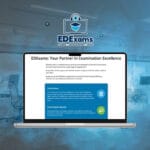The fact that all students have different ways of revising and retaining information means that drawing up revision guidelines that will suit everyone is almost impossible.
However, there are some universal elements that all pupils who care about their exams will take on board and that can be adapted to any subject. Start with these four:
1. Organisation
Organisation can encapsulate traditional methods and more technological ones.
No one tool, whether it’s a paper revision planner or an app, is inherently better than the others. It just depends on the student involved.
For some, having a paper timetable attached to their study space works best. Others like apps such as Trello or Get Revising to keep them on track.
Offering a range of options – whatever your personal preference – will give them something to latch on to that they may even enjoy using.
2. Subject differences matter
Some revision setups are designed solely for subjects where there are numerous small chunks of information to absorb.
Certainly, revision in sections makes complete sense for mathematical ideas and segments of languages, but different subjects will lend themselves to different ways of revising.
As Which? points out:
This might depend on how intense the material is, how it will be assessed or simply how best you retain everything.
Again, methods might need to be adapted to suit different students.
It’s unsurprising that there are apps that adapt perfectly to different subjects. For instance, Memrise is great for languages and vocab. Check out this TES blog to learn about a selection of revision apps, but just remember that putting a range of options on the table means students are more likely to find one they like.
3. Prioritising is essential
In an ideal world, revision guidelines would state exactly how much time should be spent on a module and offer a complete timetabled guide to subject revision.
However, it doesn’t work like that. Pupils don’t retain the same information as each other or understand things in the same way. There are always going to be topics that individual students will need to prioritise, from the basic concepts up to something more substantial that could be the difference between the top grades.
Students may benefit from giving everything a priority level and working on the highest priority topics first – even a traffic light system might help.
4. Revision activities must serve a purpose
There are so many revision activities that can be adapted for different subjects that navigating through them to find ones that will be most useful to students in your area can be tricky.
There are, however, some tried and tested favourites that can be used in different settings. This article over on the TES website gives more detail, but the clock revision idea can be adapted to any subject and is a brilliant one for students to try at home for bite-sized revision.











